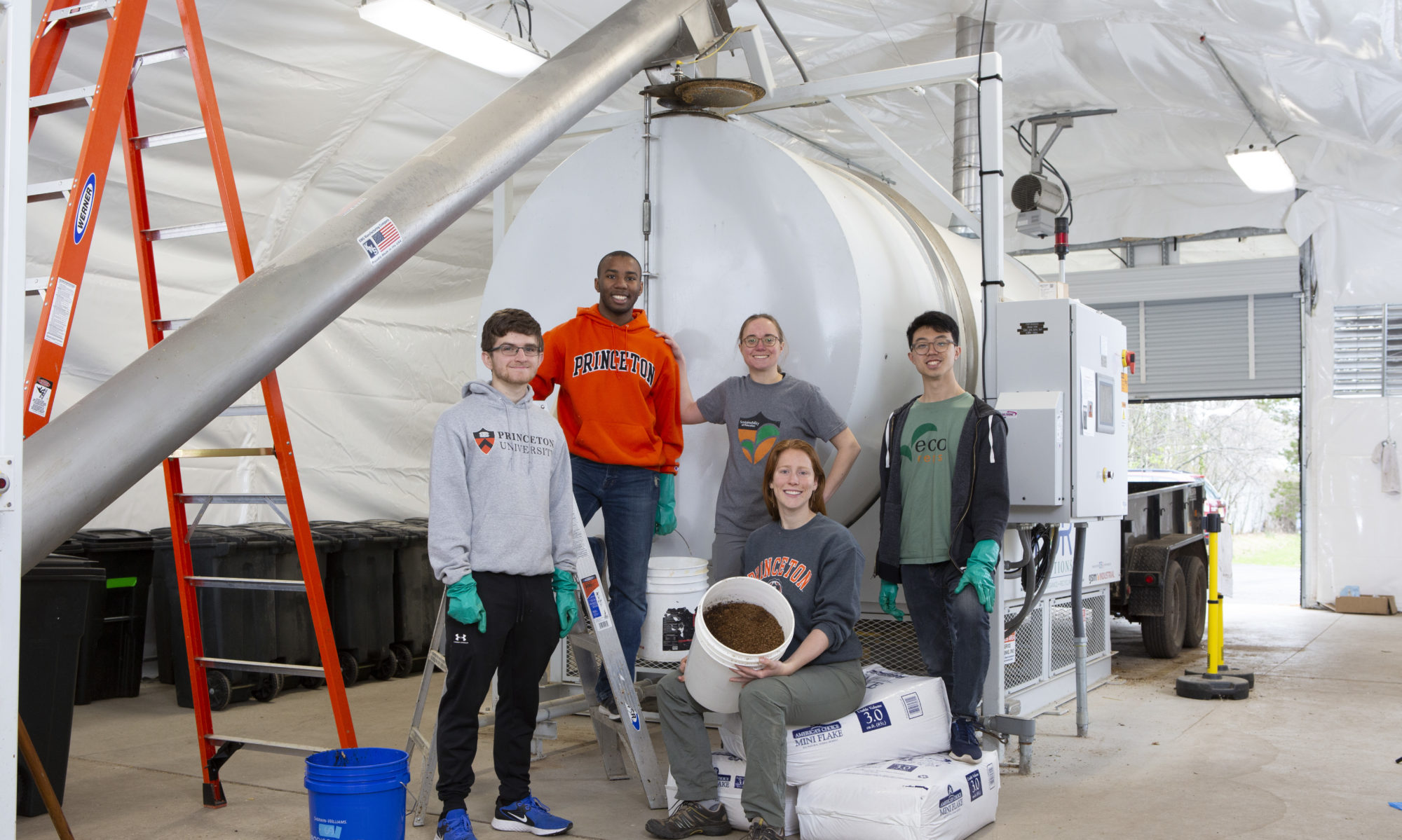Dear friends of the S.C.R.A.P. Lab,
We hope all forty-two of you are continuing to stay healthy and are enjoying a great start to 2022 ! As with every first post of a new year and new semester, the ComPOSTer takes a moment to recap the past year and more importantly, provide some optimism about what is to come in the year ahead.

2021 YEAR IN REVIEW
Unfortunately our original plan to relocate and re-open the S.C.R.A.P. Lab during the spring of 2021 was halted due to permitting challenges. While the relocation was delayed to early September, progress was swift, and the entire facility and composting system were reassembled in November. In the meantime, the ComPOSTer completed its faculty Q&A blog series with the graduation of Wesley Wiggins ’21 and covered other news about legislative updates on the state of organics recycling in New Jersey, and world news such as The Global Methane Pledge.
Additionally, we have made good use of the pause in operations by getting more involved in community partnerships in food and agriculture research, understanding how environmental justice factors into these issues, deepening our operations training, networking with other system operators and industry experts, and developing a re-start plan that includes practical tweaks to the facility and equipment that will help make operations easier.

2022 PLANS
The last remaining step before we can restart operations is the electrical hookup. We are hopeful students will once again have a hand in operations this semester. Then we are planning to pick-up where we started on our operational and research efforts, including:
- Making improvements to our composting equipment to better meet our needs
- On-boarding an assistant operational manager
- Continuing to test and expand compostable serviceware options in the Frist Gallery
- Integration of research efforts with operational testing of different feedstocks and recipes (i.e. to what extent can we substitute our purchased wood shavings for wood chips, leaves, or even compostable serviceware, the latter of which looks like it could be here to stay? What is the impact on emissions, microbial communities, nutrient density, etc.)?
- Testing of new food scraps collection and drop-off systems to expand reach across campus. Now with our own van!
- Launching new graphics and informational signage for the relocated facility
- Using Tableau Public to better visualize and communicate our composting data
- Continuing to raise awareness about the environmental justice implications of composting
- Seeking new avenues of academic engagement (currently helping to plan a first-year seminar course)
